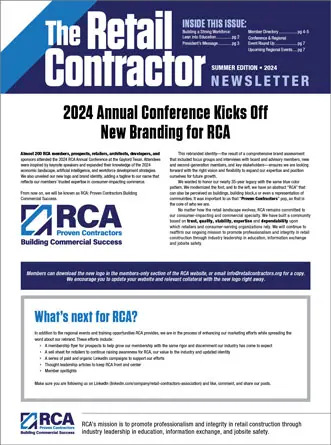With the rise in popularity of electric vehicles (EVs), many homeowners are considering making the switch to greener transportation options. However, before purchasing an EV, it is crucial to ensure that your home is equipped with a suitable charging infrastructure. In this comprehensive guide, we will walk you through everything you need to know about preparing your home for an electric vehicle, particularly focusing on installing EV charging stations. From understanding different types of chargers and their capabilities to identifying optimal locations for installation and navigating potential electrical upgrades, this article provides valuable information for homeowners looking to embrace the future of automotive innovation. Whether you are a novice or well-informed about EV technology, this professional guide aims to empower you with all the knowledge needed in order to make informed decisions when installing an EV charging station at your residence. Please be aware that these are only suggestions and if you are not an electrician, contact a professional service provider like AB Sydney.
Understanding Different Types of EV Charging Stations
As the popularity of electric vehicles (EVs) continues to grow, it is essential for homeowners to have a good understanding of different types of EV charging stations. There are various options available, including Level 1, Level 2, and DC fast chargers. Level 1 chargers use a standard household outlet and provide the slowest charging rate, while Level 2 chargers require a dedicated circuit and offer faster charging times. DC fast chargers are the quickest option but also tend to be more expensive.
Choosing the right type of charger depends on factors such as your daily commute distance, availability of charging infrastructure in your area, and budget considerations. It is also important to consider installation requirements for each type of charger. While Level 1 chargers can be easily installed using an existing electrical outlet, installing Level 2 or DC fast chargers may require professional assistance and additional electrical work.
By familiarizing yourself with these different types of EV charging stations and considering your specific needs and circumstances, you can make an informed decision on which charger will be most suitable for your home. Understanding these options ensures that you have access to convenient and efficient charging solutions for your electric vehicle.
Choosing the Right EV Charger for Your Home
Choosing the right EV charger for your home is essential to ensure efficient and reliable charging for your electric vehicle. There are various factors to consider when making this decision. Firstly, you need to understand the different types of chargers available and their capabilities. Level 1 chargers use a standard household outlet and provide a slower charge, while Level 2 chargers offer faster charging speeds but require professional installation and may necessitate electrical upgrades.
Additionally, it’s crucial to identify the optimal location for installing your EV charger. Factors such as proximity to your vehicle’s parking spot and access to electrical infrastructure should be considered. Furthermore, navigating potential rebates or incentives that could offset some of the costs associated with purchasing and installing an EV charging station is another important aspect.
Ultimately, by taking the time to research and select the right EV charger for your specific needs, you can ensure convenient and reliable charging at home for your electric vehicle while minimizing any potential issues or inconveniences along the way.
Installing an EV Charging Station: Location and Considerations
When it comes to installing an EV charging station at home, the location is a crucial factor to consider. The charging station should be conveniently located for easy access and safe usage. Ideally, it should be installed in a well-ventilated area with sufficient space around it. Additionally, you need to ensure that the location provides easy access to your electric meter and main electrical panel for proper installation.
There are several other considerations when selecting a suitable location for your EV charging station. You will need to account for factors such as available power supply, distance from parking space, and potential future needs. It is essential to consult with a certified electrician who can evaluate your electrical system’s capacity and make necessary adjustments or upgrades if required.
Furthermore, you may want to consider whether you want an indoor or outdoor installation based on climate conditions in your area. Outdoor installations offer convenience but may require additional weatherproofing measures while indoor installations provide more protection but require adequate ventilation systems.
Overall, careful consideration of location plays a vital role in setting up an efficient and safe EV charging infrastructure at home.
Navigating Potential Challenges and Solutions in EV Charging
Navigating potential challenges and finding solutions in EV charging is crucial for homeowners considering making the switch to electric vehicles. One challenge is understanding different types of chargers and their capabilities. Homeowners need to research and decide between level 1, level 2, or DC fast chargers depending on their needs. Level 1 chargers use a standard household outlet but have slower charging speeds, while level 2 chargers require professional installation but offer faster charging times. DC fast chargers are even faster but come with higher costs.
Another challenge is identifying optimal locations for charger installation. Factors such as proximity to electrical panels, available space, and convenience play a role in determining the best location. Moreover, navigating potential obstacles like parking restrictions or getting homeowner association approvals can also be challenging.
To tackle these challenges, homeowners can seek professional assistance from certified electricians or consult with EV manufacturers for guidance on suitable charger options based on their electrical systems and estimated usage patterns. Additionally, engaging with local authorities or neighborhood associations early in the process can help address any regulatory concerns or obtain required permissions smoothly.







 The 2024 virtual Men’s Round Table will be held Q4, 2024, date TBD.
The 2024 virtual Men’s Round Table will be held Q4, 2024, date TBD.












